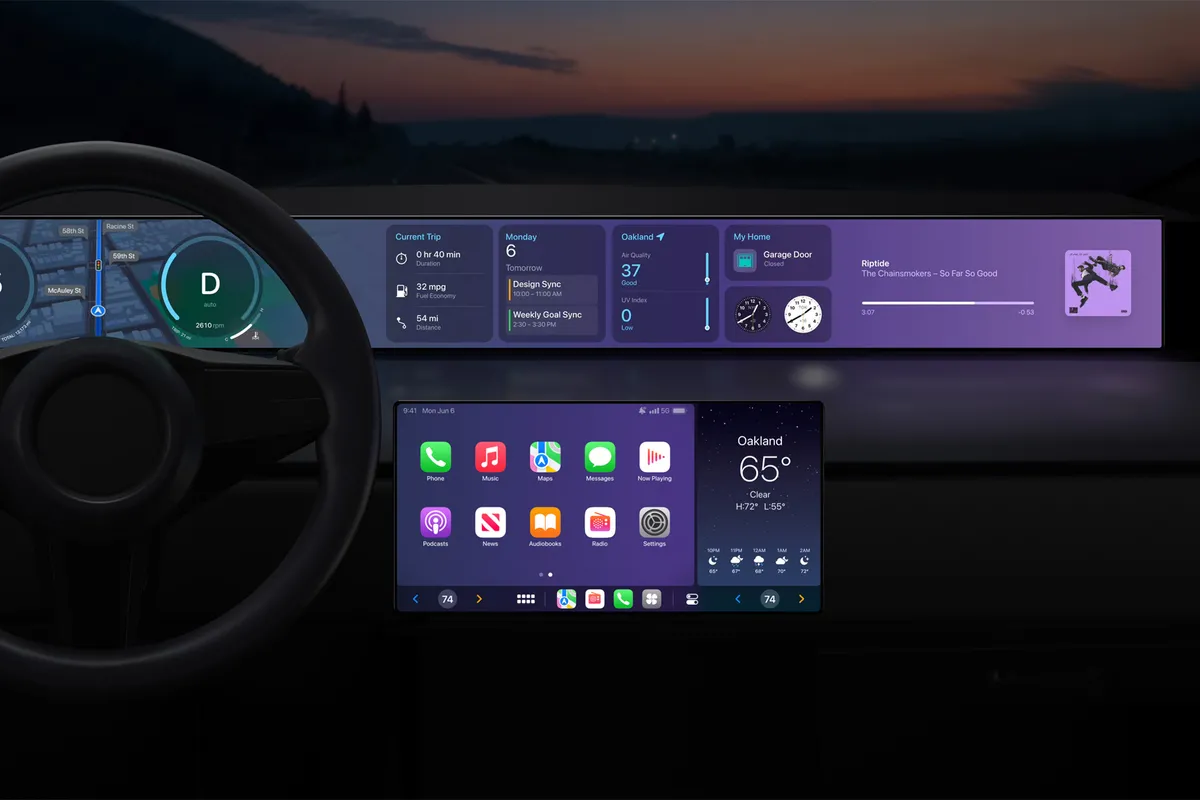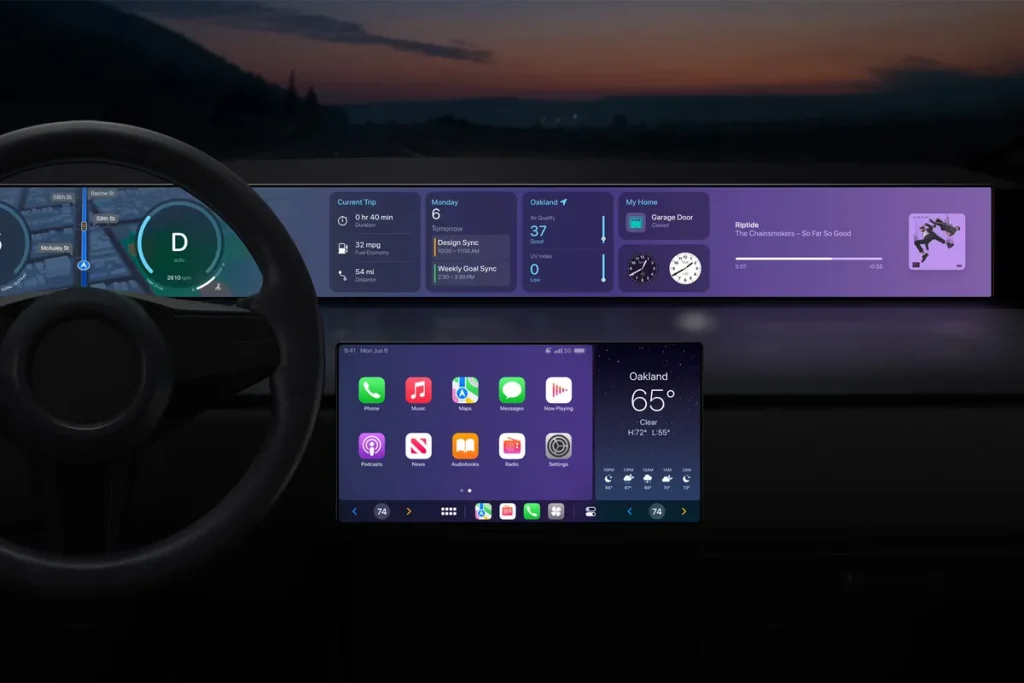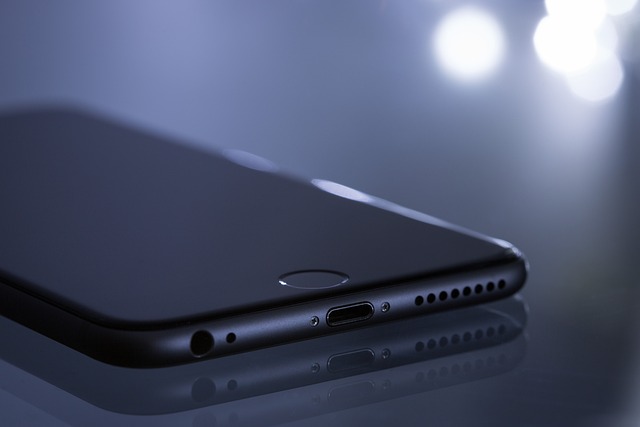
Image: Apple
CarPlay is undoubtedly the most beloved in-car entertainment system for Apple iPhone users. In 2022, Apple introduced the next-generation CarPlay at WWDC. However, two years have passed with nothing more than a single presentation slide, leaving enthusiasts in the dark. Recently, some developer information has surfaced, revealing a significant change: unlike the current CarPlay, which supports both wired and wireless connections, the next-generation CarPlay will only support wireless connectivity.

Presently, when CarPlay connects to an iPhone, it mirrors an iOS interface with large icons on the vehicle’s central display. This allows users to access apps like Gaode Maps, Apple Music, and other supported applications, essentially functioning as a screen mirroring feature. All audio, navigation, and data come from the iPhone. The next-generation CarPlay aims to extend beyond this by integrating control over certain in-cabin features such as air conditioning, and ambient lighting, and displaying information like speed, fuel, and battery levels, even enabling the setting of driving modes.
According to the latest development architecture diagram released at WWDC 2024, the next-generation CarPlay will be more autonomous, with some functions capable of operating independently on the vehicle’s infotainment system. This will allow control over vehicle functions and access to vehicle status information. With its independent computing capability, the new CarPlay can continue running some functions even if the connection to the iPhone is lost. Since the new CarPlay only supports wireless connections to the iPhone, Apple is focusing on enhancing the performance and stability of wireless connectivity.
Although Apple’s vision for the next-generation CarPlay appears promising, it requires broader control over vehicle functions, contingent upon the agreement of car manufacturers. Currently, only Aston Martin and Porsche have expressed clear support. In an interview with The Verge, the CEO of Mercedes-Benz stated that while they support CarPlay, it is limited to certain features, as they do not agree to any control over the cockpit functions.
The next-generation CarPlay may not receive the widespread support that the current version enjoys. Major car manufacturers, particularly emerging brands in China, are developing their intelligent in-car systems (such as Huawei’s HiCar, Geely with Meizu, and Xiaomi). While they may accept Apple’s screen mirroring on the central display, relinquishing control over cabin and vehicle functions is a different matter.
